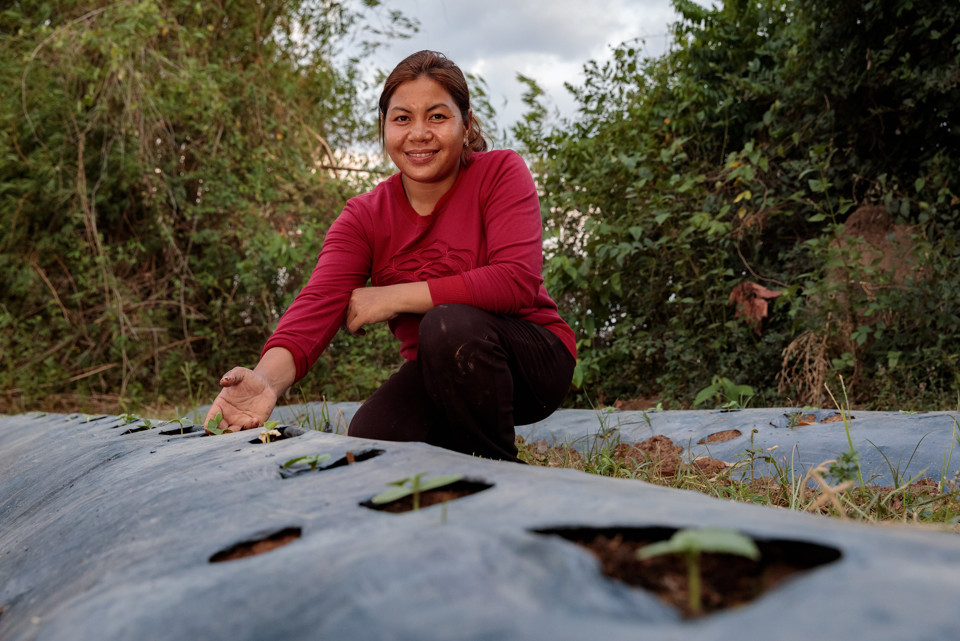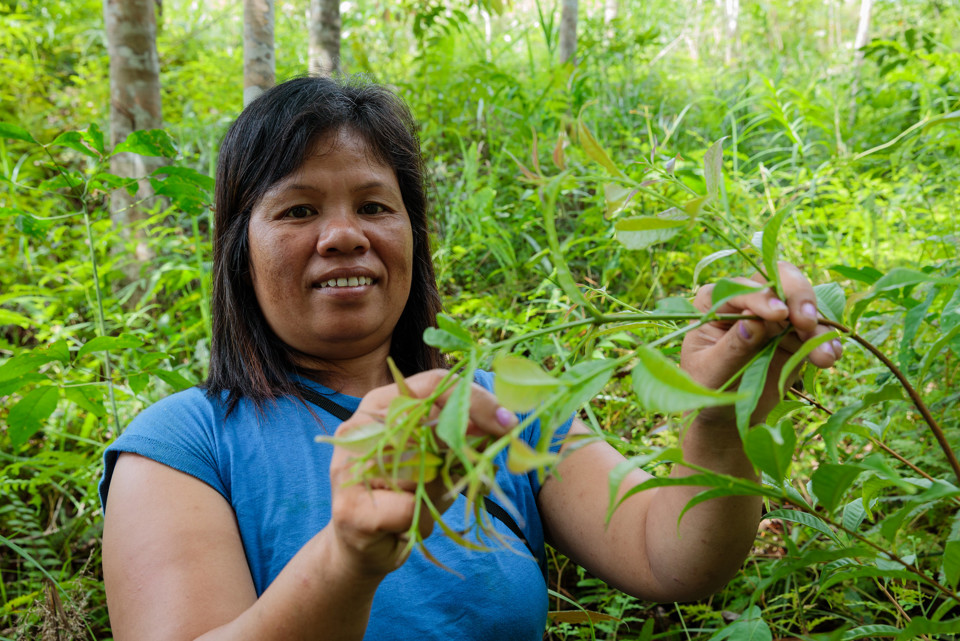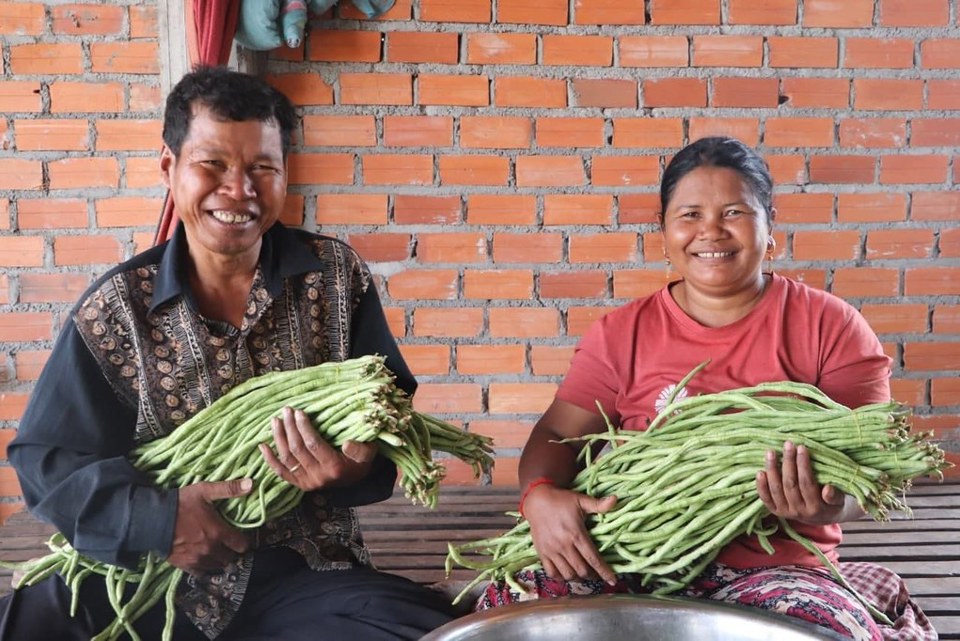Global Issues
Agriculture and sustainable farming supporting poor rural areas

Oliva works in fields growing beans near her home in Karatu District in Tanzania, August 2020. Photo credit: Richard Wainwright/Caritas Australia.
Why is agriculture important?
80%
of people living in poverty live in rural areas, with many relying on agriculture as their primary source of food and income.
65%
Agriculture is a source of income and employment for approximately 65% of the world’s working poor.
690 million
In 2019, nearly 690 million people worldwide had insufficient access to food.

Em and Lat are farmers living in rural Cambodia. Photo credit: ARD Cambodia.
Nearly 80% of people living in poverty live in rural areas (World Bank), with many relying on agriculture as their primary source of food and income.
In subsistence agricultural households, farmers grow crops to meet their own family’s immediate food needs and are often dependent on producing healthy crops for their survival. When a family has secure access to food, they are less vulnerable to disease and poverty and more likely to have improved nutrition.
Agriculture helps to feed a growing population
Agriculture is essential to tackle global hunger and food insecurity. In 2019, nearly 690 million people worldwide had insufficient access to food (United Nations). The COVID-19 pandemic is expected to push this number even higher, with lockdowns further disrupting global supply chains and aggravating pre-existing food security issues for vulnerable communities.

Phany working in one of her gardens with newly planted vegetables at their home in Pursat District, Western Cambodia, 2019. By using the drip irrigation system, plastic covering to keep in moisture and other techniques learnt through the Caritas Australia supported Environmental Protection and Development Organisation (EPDO) project, she can now grow vegetables during the dry hot summer. Photo credit: Richard Wainwright/Caritas Australia.

Oliva walks to work in fields near her home in Tanzania, August 2020. Photo credit: Richard Wainwright/Caritas Australia.
Rising global temperatures are threatening livelihoods
Extreme weather events pose a challenge for farming communities, who rely on water to nurture their crops and to feed their livestock. Agricultural production currently consumes approximately 70% of the world’s freshwater usage (World Bank). This is even higher in South Asia, where more than 90% of freshwater is used on agriculture.
Sustainable agricultural training can help farmers to thrive
Working with our local partners around the world, we help to empower farmers through sustainable farming training programs. Through these programs, farmers are able to learn techniques to produce healthier, high-yielding crops that they can sell for a higher profit and secure a regular income stream.
Sustainable farming methods can improve agricultural practices through:
Planting drought-resistant seeds.
Cultivating long-life trees.
Water and soil conservation.
Training farmers in making organic fertilisers.
Installing drip irrigation infrastructure.
Increasing access to water sources for agriculture and farming through the construction of water canals and water ponds.
Improving business knowledge and skills through training on small business development, product packaging and sorting.
Strengthening market connections and access through Agricultural Cooperatives.
How we are supporting farmers in Indonesia
Indonesia is home to some of the world’s largest rice, cocoa and coffee bean plantations. Agriculture provides jobs and livelihoods for nearly 30% of the country’s workforce, making it the second largest-employer across the archipelago (Asian Development Bank). But environmental changes are having a significant impact on Indonesia’s agricultural sector, with shorter rainy seasons, changing precipitation patterns and intense floods impacting the livelihoods of farming communities (International Food Research Policy Institute).

Tatik (38) in part of her communities preserved forest collecting belinjo leaves used for cooking soup in Tembak hamlet, Sintang District, Indonesia, 2018. Photo credit: Richard Wainwright/Caritas Australia.
Some achievements of the program include:
3,702
farmers have adopted sustainable farming practices.
1,733
farmers have reported an average increase of corn production by 27%.
7,568
people have improved access to sufficient food, including 3,806 children.
3,415
farmers have reported an annual increase in income by 24%.

Lat and Em from Cambodia. Photo credit: Sam Rinang.
Sustainable farming can transform lives: Em and Lat’s story
Em and Lat are rice and poultry farmers living in rural Cambodia. Water shortages are a significant challenge for many rural Cambodian communities, where a lack of basic infrastructure and sewerage means that water is often not effectively captured or stored during rainy season.
The ongoing water shortages meant that Em and Lat’s rice fields would yield poor harvests every season and their livestock would often get sick or perish. They struggled to earn enough income to provide food for their family.












